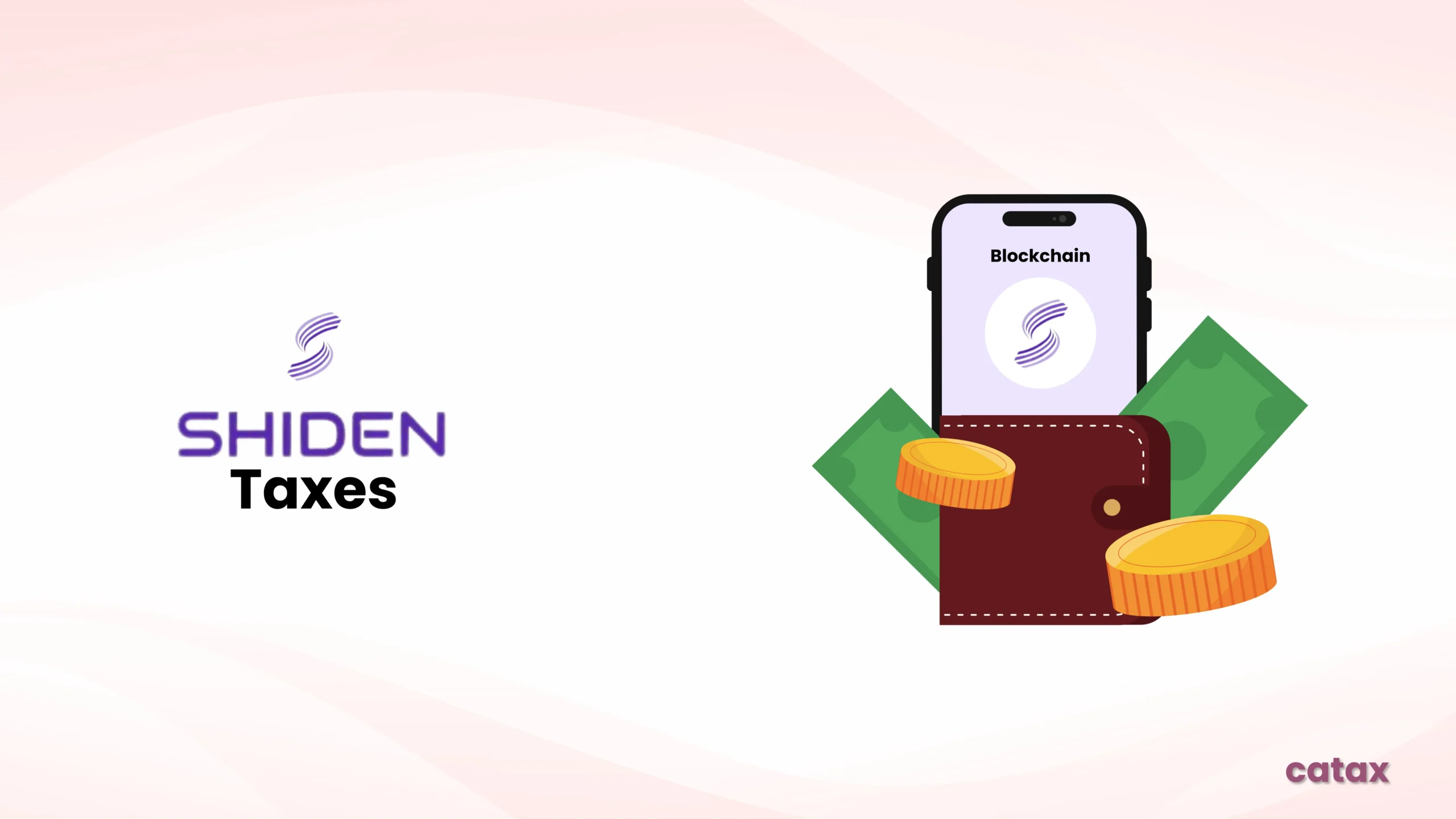Cryptocurrency tax rules vary by country, and Shiden Network (SDN) taxes transactions may be taxed differently depending on local regulations. Whether you buy, sell, trade, or stake SDN, understanding how tax authorities classify these activities helps you stay compliant and avoid penalties.
This guide simplifies Shiden Network tax rules so you can manage your taxes confidently and stay on the right side of the law.
How to Connect Your Shiden Wallet to Catax?
To effortlessly track your Shiden Network (SDN) transactions and calculate your crypto taxes, follow these quick steps to connect your wallet to Catax:
- Open your Shiden wallet or use a supported block explorer (such as MetaMask, Ledger, Trust Wallet, or any compatible wallet).
- Copy your public wallet address from your Shiden wallet.
On Catax:
- Log in to your Catax account and select your country.
- Select Chain, then search for Shiden Network.
- Paste your public wallet address and click Connect.
Once connected, Catax will automatically sync and track all your SDN transactions, making crypto tax reporting easy, accurate, and hassle-free.
Calculate My Taxes ➤Are Shiden Network Transactions Taxable?
Yes, in most countries, Shiden Network (SDN) transactions are considered taxable. Depending on how you use SDN, tax authorities may classify it as a capital asset, property, or income.
When Do You Have to Pay Taxes on Shiden (SDN)?
You may need to pay taxes in the following situations:
- Selling SDN for a profit – If you sell Shiden tokens for more than you paid, the profit is generally subject to capital gains tax.
- Trading SDN for another cryptocurrency – Swapping SDN for another crypto like Ethereum or Bitcoin may trigger a taxable event.
- Using SDN for purchases – Buying goods or services with SDN could lead to capital gains tax if its value increased since you acquired it.
- Earning SDN through staking – Staking rewards are typically treated as income and may be taxed when received.
- Receiving SDN as payment – If you’re paid in SDN for services or work, it’s usually taxed as income at the token’s fair market value at the time of receipt.
Because tax regulations vary by jurisdiction, it’s important to check how your country classifies and taxes Shiden transactions.
Can You Deduct Trading Fees and Other Costs?
Many SDN users wonder if costs like trading fees or storage tools are deductible. It depends on your local tax laws.
Some countries allow deductions for:
- Trading fees for buying/selling SDN
- Network fees for transferring SDN
- Security expenses like hardware wallets
Others may restrict deductions to:
- The original purchase cost (cost basis) of SDN
- Excluding any extra tools, fees, or services
Always refer to local tax rules or a tax advisor to understand what’s deductible in your region.
How Is SDN Taxed Based on Holding Period?
Your tax rate on SDN gains may vary depending on how long you held the tokens:
- Short-term holdings (< 1 year): Often taxed at your regular income tax rate
- Long-term holdings (1+ year): Some countries offer reduced rates for long-term capital gains
- Flat-rate systems: A few jurisdictions apply a fixed rate regardless of holding period
Knowing your country’s specific tax structure can help you optimize your strategy and reduce your tax liability.
You can also check out our Country-Specific Guide for Crypto in Your country. This guide provides insights on regulations, tax implications, and compliance measures breifly explained for each country.
How Is Staking Income Taxed?
Staking Shiden (SDN) can generate passive income, but the way it’s taxed depends on your country’s crypto tax laws. Some governments tax staking rewards as soon as you receive them, while others only apply tax when you sell or exchange those tokens.
How Countries Tax Staking Rewards:
- Taxed as income – In many countries, staking rewards are treated as income when received. That means taxes are due at the time you earn the SDN tokens, based on their market value. These are typically taxed at your personal income tax rate.
- Taxed as capital gains – Some jurisdictions only tax you when you sell or trade your staking rewards. In these cases, you pay tax only on the gains made from the time you received the SDN to when you sell it.
Before staking, check how your local tax system handles staking rewards to avoid surprises during tax season.
Can You Claim Shiden Losses for Tax Benefits?
Not all crypto trades are profitable. If you sell SDN at a loss, you may be eligible for tax benefits—depending on your country’s tax rules. Here’s how different tax authorities treat crypto losses:
- Loss offsets – Some countries allow you to offset SDN losses against other investment gains. This means you only pay tax on your net gains.
- Loss carryforward – If you don’t have gains this year, some tax systems let you carry your SDN losses forward to offset future profits.
- No deductions – In certain jurisdictions, crypto losses are not deductible, which means you can’t use them to reduce your taxes.
To qualify for these benefits, keep detailed records of every transaction and loss involving SDN.
How to Stay Compliant with Shiden Tax Rules
Crypto tax regulations are evolving, so staying compliant is essential. Here’s how to manage your SDN taxes effectively:
- Know your tax classification – Understand whether your SDN earnings are treated as capital gains, personal income, or business income in your country.
- Keep accurate records – Maintain a log of every SDN transaction—buying, selling, trading, staking, or using SDN for purchases.
- Use a crypto tax tool like Catax – Catax automatically tracks all your SDN activity and helps simplify your tax filings.
- Consult a tax advisor – If you’re unsure about your obligations, a crypto-savvy tax expert can guide you based on your region’s laws.
By staying informed and organized, you can handle your Shiden taxes confidently and avoid costly mistakes.
Book a Free Consultation Now →